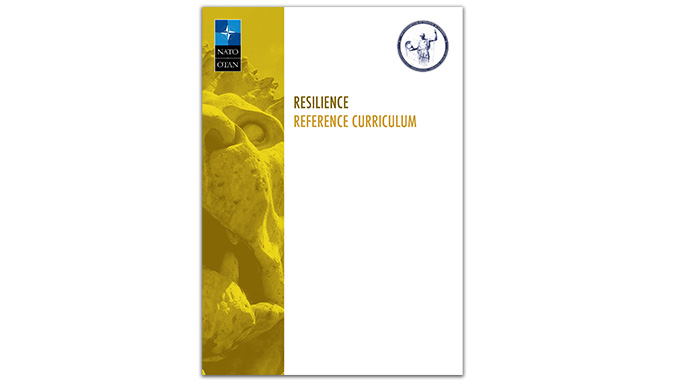At a meeting of its Resilience Committee on 14 February 2025, NATO introduced its first Resilience Reference Curriculum (RRC) to support efforts by NATO Allies and partners to strengthen their resilience against military and non-military threats and challenges to the Alliance's security and to their own national security. These can include natural disasters, disruption of critical infrastructure, or hybrid or armed attacks.

The curriculum contributes to developing skills and strategies to enhance resilience in an era of uncertainties, disruptions, interdependence, and technological advancements. It also offers a structured approach to understanding resilience and its critical role in national and collective security.
The development of the Resilience Reference Curriculum was a collaborative effort amongst NATO's Defence Education Enhancement Programme (DEEP), NATO's Resilience Section, and the Partnership for Peace Consortium and featured contributions by experts from Allied and partner countries. In their foreword to the curriculum, Mr. Angus Lapsley, NATO's Assistant Secretary General for Defence Policy and Planning, and Admiral Pierre Vandier, Supreme Allied Commander Transformation, emphasised the importance of resilience education, stating: "All of this requires a whole-of-government approach, supported by our broader society, with education and awareness acting as key agents of transformation. The Resilience Reference Curriculum constitutes an important guiding framework for developing courses, study programmes, and training on the topic of resilience for defence education purposes."
Allies and partners can leverage the Resilience Reference Curriculum to develop their own tailored courses on resilience, with support provided through NATO's Defence Education Enhancement Programme. Mr. Mariusz Solis, Lead for DEEP, highlighted NATO's commitment to assisting partners: "The Resilience Reference Curriculum will be available to all interested partners and Allies. DEEP will work diligently to help partners who request support in implementing tailored versions of the curriculum for their professional military education institutions. NATO will also work to implement the RRC as a distance course. Supporting our partners in this way makes us all stronger and more resilient in the face of threats to our shared security."
With this initiative, NATO continues to reinforce its commitment to enhancing resilience education and strengthening the collective security of the Alliance and its partners.






